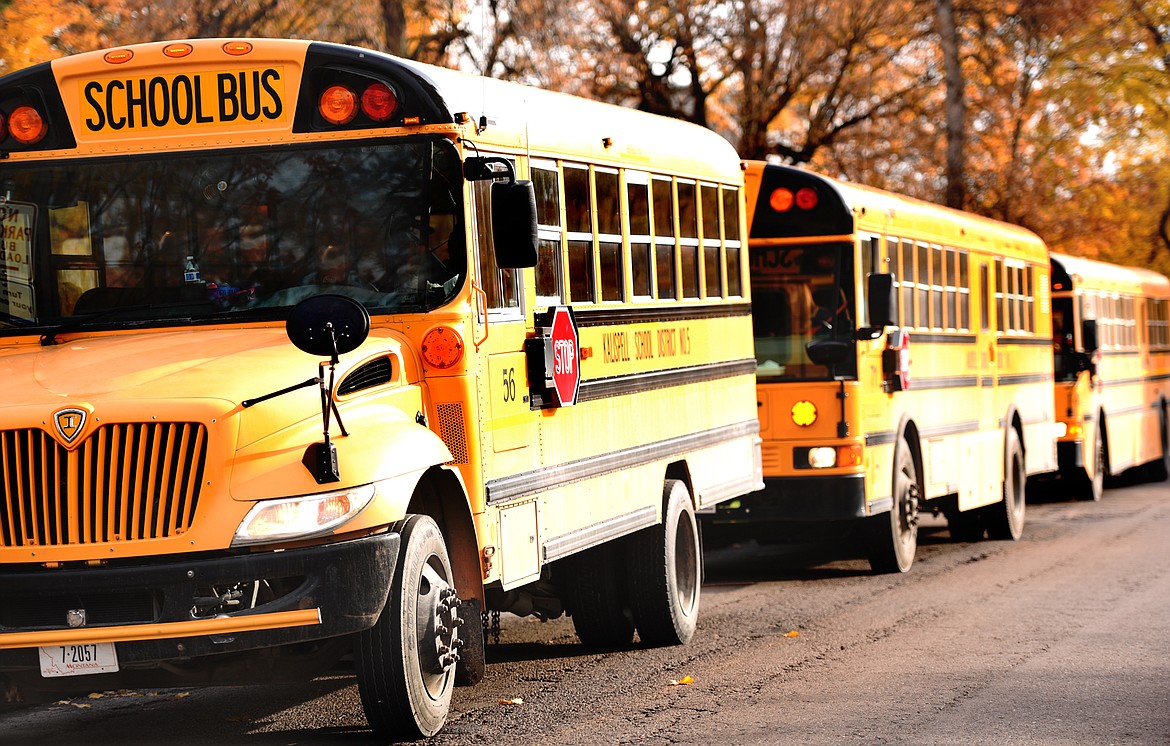Montana tribes sue over Indian Education for All compliance
HELENA (AP) — Montana tribes and the parents of 18 students filed a lawsuit Thursday alleging state education leaders are violating a constitutional requirement to teach about the unique culture and heritage of Native Americans.
The lawsuit, filed in District Court in Great Falls, seeks an order to require the Board of Public Education to create specific educational standards for the Indian Education for All program and to require the superintendent of public instruction to ensure schools meet those standards and accurately report how they are spending money allocated for the program.
"We need state education administrators to create a system of accountability to ensure every educator teaches this subject in a way that preserves American Indians' cultural integrity and to ensure the money Montanans voted to invest in Indian Education for All, benefits every student," Shelly R. Fyant, chair of the Confederated Salish and Kootenai Tribes of the Flathead Reservation, said in a statement.
A representative of the Office of Public Instruction declined to comment on the pending litigation and McCall Flynn, executive director of the Montana Board of Public Education, declined to comment before the agency is served with the complaint.
Montana's 1972 Constitution required all public school students to receive education about Native American culture and heritage. The Legislature passed the Indian Education for All Act in 1999, stating it was the policy of the state to "recognize the distinct and unique cultural heritage of American Indians and to be committed in its educational goals to the preservation of their cultural heritage."
In a 2004 lawsuit over school funding, a state court found that Montana's educational goals showed no commitment to the preservation of Native American cultural identity.
Funding began being allocated in 2007, but the lawsuit states schools aren't providing adequate educational programs and face no penalties for spending IEFA funds for other programs.
The complaint argues a 2015 evaluation of how well Indian Education for All was being implemented found Montana did not have sufficient standards, reporting requirements or accountability for spending the funding. It said implementation of IFEA in some school districts was "very minimal."
The majority of the state's school districts report to the Office of Public Instruction only the amount of IEFA funding spent each year, and only about 10% report spending their full allocation, the complaint states. Based on the reports, school districts accounted for spending just over 50% of the $6.7 million the legislature allocated for IEFA during fiscal years 2019 and 2020, the complaint states.
During the 2017-18 school year, some schools reported making no Indian Education for All expenditures, the complaint states.
The IEFA requires that schools work with tribes to create educational programs and that school personnel should "have an understanding and awareness of Indian tribes to help them relate effectively with Indian students and parents, that educational personnel provide means by which school personnel will gain and understanding of and appreciation for the American Indian people." The complaint states there is no mechanism for reporting such cooperation and asks for enforcement of that aspect of the act.
"We want the children in our public schools to grow together with as much effort put towards understanding one another as possible," said Amber Lamb, a member of the Assiniboine and Sioux Tribes of the Fort Peck Indian Reservation, and a parent of a high school student in Missoula.
"It is important to be educated about historical elements that built the culture we are living in today. If we want a cohesive community, it is necessary to present details and truths about the lives of Indigenous people in order to work together to be a strong community," Lamb said in a statement. "We want our schools to be safe places where all children feel accepted and open to learning together and about each other."
In some cases, schools are reporting spending Indian Education for All funding in ways that don't advance the program, the plaintiffs allege.
An elementary school library in Helena has a book about marmots and their social habits with a sticker inside that states it was purchased in 2007 with IEFA funds. The book does not teach about marmots within the context of cultural significance, relevance or meaning to Native Americans, the complaint states.
One school district used its $150,000 to pay a portion of the librarians' salary and benefits without explaining how that met IEFA standards, the complaint states.
Another school purchased a book titled "Squanto and the Miracle of Thanksgiving," which, according to Amazon, "approaches the holiday from an evangelical point of view," and "shows that the actual hero of the Thanksgiving was neither white nor Indian, but God." The district reported the book as an IEFA-related purchase.


